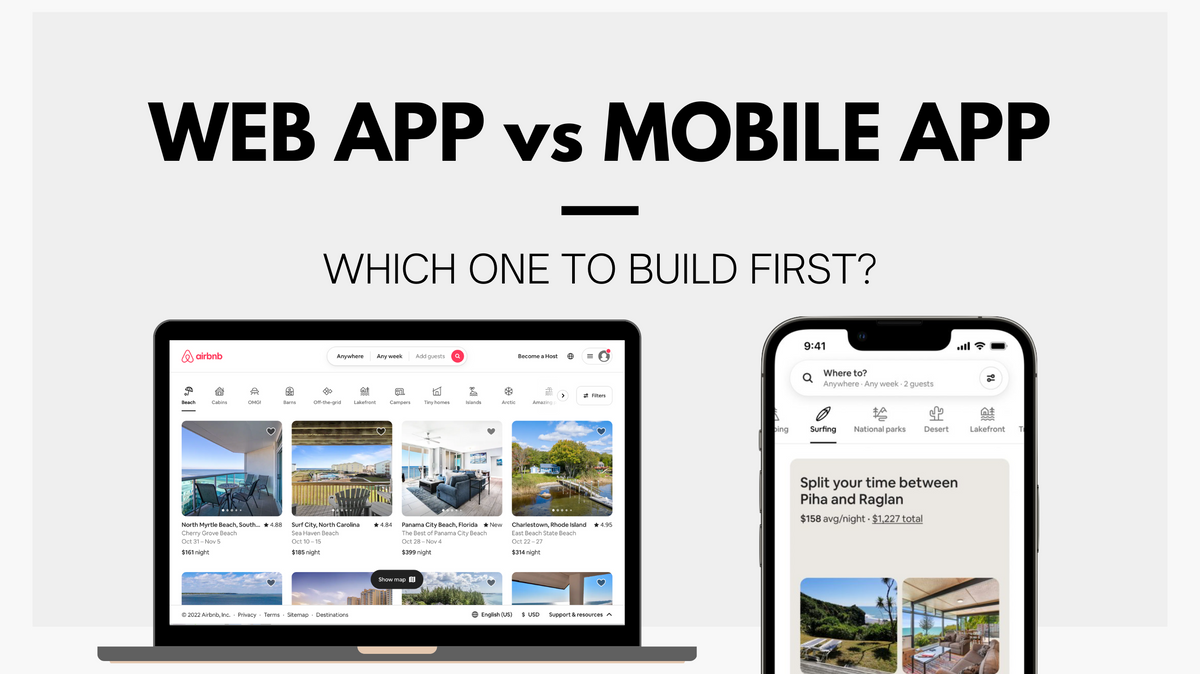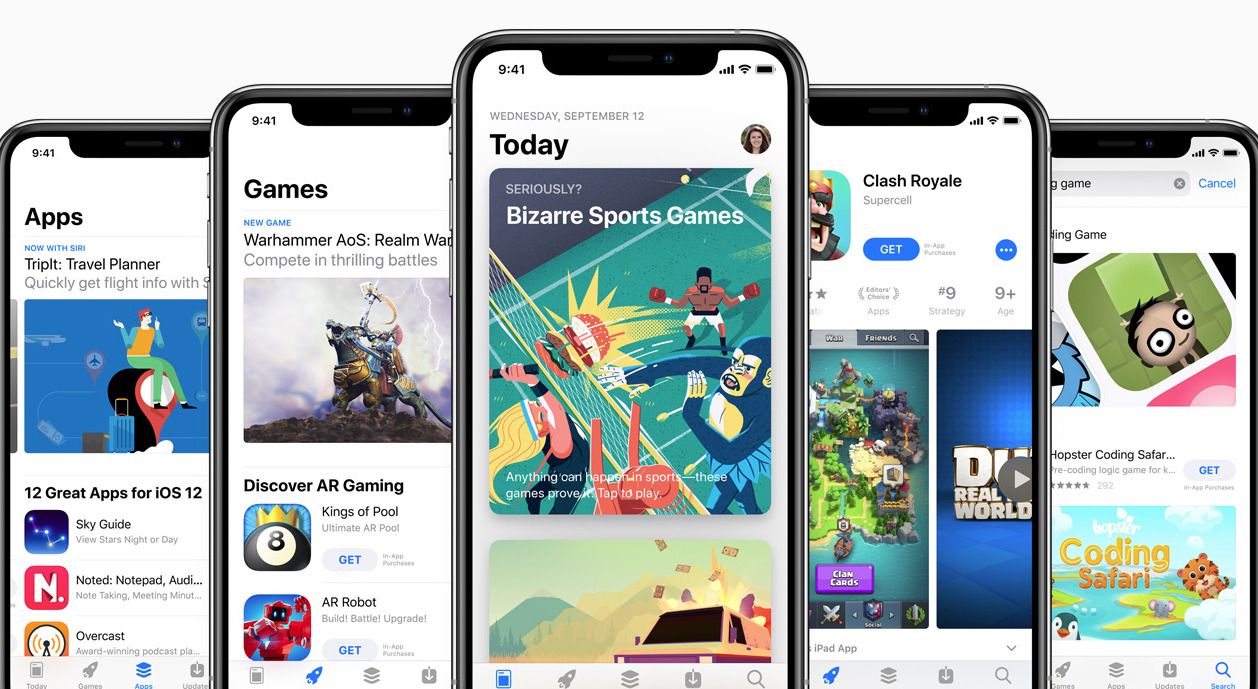Should I build a mobile app or a web app first?
We have many clients who come to us wanting to build a mobile app... and a web app... and a mobile-responsive web app... all at once. In this post you will learn why and how to decide which one is right for you and your business when just getting started.

We have many clients who come to us wanting to build a mobile app... and a web app... and a mobile-responsive web app... all at once. They often times don't realize that each one of those comes with its own pros and cons, so in this post you will learn how to decide what is right for you and your business when just getting started.
When building an MVP, there are many unknowns: you don't have an active user base that you can analyze, your UX design decisions are based on formal research, not actual usage, you might be unclear on what price model to use etc. First-time entrepreneurs often times forget that their minimum viable product is not going to be their final product. You will most likely go through dozens of iterations, design changes, pivots etc. before you arrive at a solid product that you can confidently scale. As a result of this, investing into a mobile app AND a web app that essentially perform and look the same is not a wise way to use your resources when starting out.
Your main goal should always be to launch an MVP as fast as possible, so that you can start getting feedback, generating revenue and narrow down your product-market fit. One medium is enough to do that. Once you finalize your base product, you can expand into other platforms.
What is the difference between a mobile app and a web app?
The word "web app" is not a popular word among non-tech people, even though everyone uses web apps on a daily basis. A web app is basically a website on steroids: you can interact with it in some way. A regular website is static: it doesn't change unless you change the code (or add things as an admin: think posting a blog post, changing the logo etc.). A web app changes based on dynamic features and inputs. You can create an account to book a hotel? Web app. You can make a purchase? Web app. AirBnB.com is a web app, Facebook.com is a web app, ThriveMarket.com is a web app. A "mobile-responsive web app" is a web app that looks just as nice on your phone (opened through a browser like Safari), as it does on your laptop. It "responds" to your phone screen's size, and it's still accessed through a domain URL like AirBnB.com.

A mobile app on the other hand is an app that you download on your phone from the Google Play store or the Apple App store. Mobile apps are regulated by Google/Apple respectively, and unlike web apps/websites - you have to follow certain guidelines. If you have a mobile app, you can't use it on your laptop or computer - you can only use it on your phone (and tablet).

Disadvantages of building a mobile app first
- Making changes takes time. Updating a mobile app, let alone submitting that update to the app store, takes time. Unlike a website or a web app, you can't just fix it up and deploy (push live) right away. In most cases, you have to resubmit the app to the app store and wait for an approval. Depending on the quality of your development team, an approval might take anywhere from 1-10 days.
- You might need more people. Building a mobile app takes longer than a web app, and often times requires a different set of skills. Unless you are working with a full-stack developer, you will oftentimes need a mobile app expert, along with a backend aficionado to make things work well.
- You have to follow the rules. Unlike a web app, you have to follow Apple's/Google's rules. You must implement specific features, flows and integrations in order for your app to get approved. For example, you must give users the option to delete their account through the app. If you don't - your app will get rejected. Working with more junior/less experienced developers could seriously hurt your business in cases where getting approved by the app store could take weeks/months due to revisions.
- You might have to share revenue. When you are providing a paid in-app experience (not physical goods), you must use Apple's in-app purchase integration (rather than a 3rd party like Stripe). Not only that - but Apple takes a 30% cut from ALL revenue you generate through the app (15% for small companies with less than $1M in revenue). This is a serious sum to consider, and unless you are generating substantial revenue, Apple's cut can have detrimental consequences on your business.
When should I build a mobile app?
In most cases, if possible, I advise to always build a web app first. It's faster to iterate, easier to build, and you have more flexibility. However, there are certain cases when building a mobile app first makes more sense. Unless you have unlimited resources (money, time, human capital) - don't build both at the same time.
Before deciding which one to build first, answer the following questions:
- Who is your primary user? If you are building an application for a school administrator who will access it mostly through their computer in the office - then building a mobile app makes absolutely no sense.
- What is the purpose of the app? If you are building an app like Uber - where having your phone is essential to the service you provide, a mobile app would give your users a much better experience.
- Who is building your app? Do they have the skills for a mobile application?
- How much time do you have? Can you allocate extra days for app store revisions?
- Will you have any desktop users? If you expect a substantial portion of your users to prefer using a laptop to use the product (think bigger screen, easier navigation etc.), then building a mobile-responsive web app might be the sweet spot that allows your users to use the application on both web and mobile.
Summary
Once you are ready to build your application, choosing which medium to start with should be a strategic decision - not simply which one you like more. A web app comes with many benefits, and truly allows for the experimentation and iteration you need when launching an MVP. A mobile app on the other hand could be a smarter choice if your business depends on mobile usage which could make a huge difference for users.